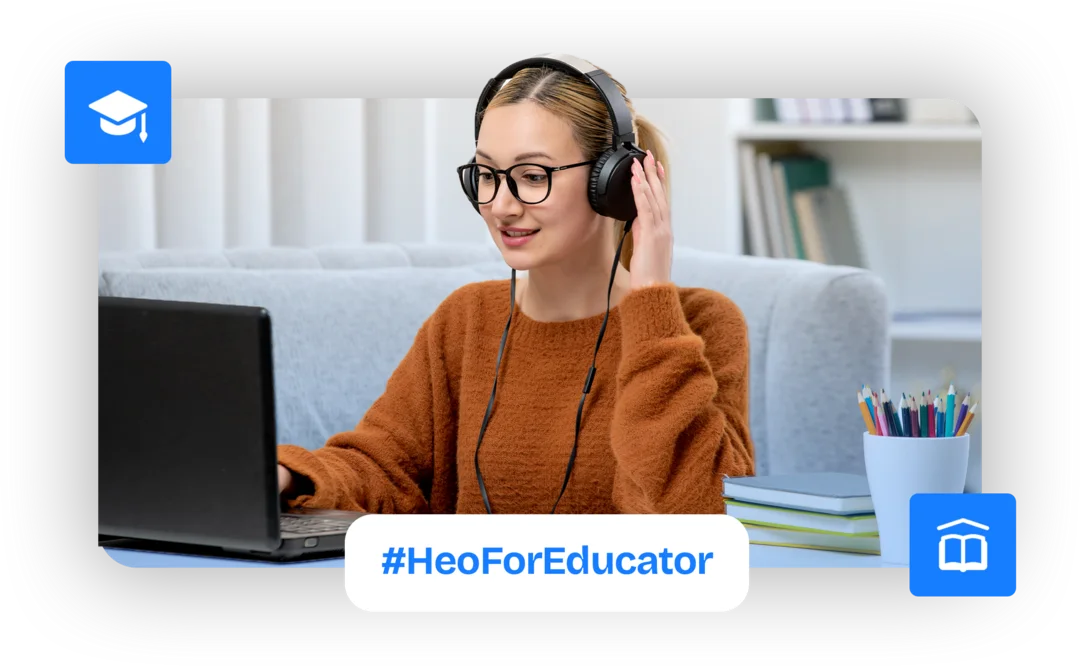Eğitim sektörü neden online eğitim platformuna ihtiyaç duyar?

Eğitim sektörü neden online eğitim platformuna ihtiyaç duyar?
Eğitim sektörü, günümüzün hızla değişen ve dijitalleşen dünyasında online eğitim platformlarına büyük bir ihtiyaç duymaktadır. İşte bunun nedenleri:
Erişim ve Esneklik
- Geniş Kitlelere Erişim: Online eğitim platformları, coğrafi kısıtlamaları ortadan kaldırarak dünyanın dört bir yanındaki öğrencilere ulaşma imkanı sağlar.
- Esneklik: Öğrenciler ve eğitimciler, zamandan ve mekandan bağımsız olarak eğitim alabilir ve verebilirler. Bu, özellikle çalışan profesyoneller ve yoğun programları olan öğrenciler için büyük bir avantajdır.
Maliyet ve Kaynak Yönetimi
- Düşük Maliyet: Fiziksel sınıfların ve altyapının maliyetlerinden tasarruf edilerek, daha düşük maliyetli eğitim çözümleri sunulabilir.
- Kaynakların Etkin Kullanımı: Ders materyalleri ve kaynaklar dijital formatta sunularak, kağıt israfı azaltılır ve kaynakların daha etkin kullanılması sağlanır.
Öğrenci ve Öğretmen İçin Avantajlar
- Kişiselleştirilmiş Öğrenme: Öğrenciler, kendi hızlarında öğrenebilir ve bireysel öğrenme ihtiyaçlarına göre uyarlanmış içeriklere erişebilirler.
- Daha Fazla Etkileşim: Online platformlar, forumlar, sohbet odaları ve interaktif içerikler aracılığıyla öğrenci ve öğretmenler arasında daha fazla etkileşim sağlar.
Teknolojik İlerlemeler ve Yenilikler
- Güncel ve Yenilikçi İçerikler: Online platformlar, sürekli güncellenen ve yenilikçi içeriklere hızlı bir şekilde erişim sağlar.
- Teknolojik Becerilerin Gelişimi: Hem öğrenciler hem de öğretmenler, online eğitim süreçlerinde teknolojiyi etkin bir şekilde kullanmayı öğrenirler, bu da dijital okuryazarlıklarını artırır.
Veri ve Performans Takibi
- Öğrenme Analitiği: Online platformlar, öğrencilerin öğrenme süreçlerini ve performanslarını izlemek için gelişmiş analitik araçlar sunar. Bu sayede, eğitimciler öğrencilerin güçlü ve zayıf yönlerini daha iyi analiz edebilir ve eğitim stratejilerini buna göre uyarlayabilirler.
- Sertifikasyon ve Tanıma: Öğrenciler, online eğitimler sonunda sertifikalar alarak, öğrenimlerinin resmi bir tanınmasını sağlayabilirler.
Pandemi ve Gelecek Hazırlığı
- Pandemi Dönemi: COVID-19 pandemisi, eğitim sektörünün online platformlara geçişini hızlandırdı. Gelecekte benzer durumlar için hazırlıklı olmak adına, online eğitim platformları hayati bir öneme sahiptir.
- Gelecekteki Eğitim Modelleri: Hibrit eğitim modelleri, gelecekte daha yaygın hale gelecek. Online eğitim platformları, bu modellerin temel taşlarından biridir.
Online Eğitim Platformlarının Sağladığı Temel Faydalar
- Erişim ve Adalet: Eğitim fırsatlarını demokratikleştirir, özellikle kırsal veya dezavantajlı bölgelerdeki öğrencilere kaliteli eğitim erişimi sağlar.
- Kapsayıcılık: Farklı öğrenme stillerine sahip öğrencilere uyum sağlayabilecek geniş bir içerik yelpazesi sunar.
- Çoklu Dil ve Kültürel İçerik: Çeşitli dillerde ve kültürel bağlamlarda eğitim materyalleri sunarak, küresel bir öğrenme deneyimi sağlar.
Eğitim sektörü, bu nedenlerle online eğitim platformlarına duyulan ihtiyacı her geçen gün daha da hissetmekte ve bu platformların sunduğu avantajlardan faydalanarak eğitim kalitesini ve erişimini artırmaktadır.
Heocademy’nin sunduğu özellikler, eğitim sektöründe çeşitli şekillerde kullanılabilir. İşte her bir özelliğin eğitim sektöründe nasıl değerlendirilebileceğine dair açıklamalar:
İstediğin Zaman İstediğin Yerde Eğitim Platformunu Kullan
- Erişim ve Esneklik: Öğrenciler ve öğretmenler, ders materyallerine ve eğitim kaynaklarına diledikleri zaman ve mekandan erişebilirler. Bu, özellikle uzaktan eğitim ve karma eğitim modelleri için idealdir.
Sitende Pazarlama ve Reklam Yap
- Pazarlama ve Reklam: Eğitim kurumları, eğitim programlarını ve kurslarını tanıtmak için bu özellikleri kullanabilir. Facebook Pixel ve Google Tag Manager entegrasyonu ile öğrenci adaylarının etkileşimlerini ve dönüşüm oranlarını takip edebilirler.
Kod Bilmene Gerek Yok
- Kolay Yönetim: Eğitimciler, teknik bilgiye ihtiyaç duymadan ders materyallerini ve içeriklerini kolayca yönetebilir ve paylaşabilirler. Bu özellik, öğretmenlerin zamanlarını daha verimli kullanmalarını sağlar.
Tam Entegre E-Commerce Altyapısı (Heocommerce)
- Ödeme Kolaylığı: Eğitim kurumları, kurs ve program ücretlerini tahsil etmek için İyzico, PayPal ve banka havaleleri gibi çeşitli ödeme yöntemlerini kullanabilirler. Bu, öğrencilere esnek ödeme seçenekleri sunar.
Etkinlik Düzenleyici
- Etkinlik Yönetimi: Okullar ve üniversiteler, seminerler, konferanslar ve atölye çalışmaları gibi etkinlikleri planlayabilir ve yönetebilir. WhatsApp hatırlatma mesajları ile katılımcıların etkinlikleri kaçırmamaları sağlanabilir.
Destek
- Kapsamlı Destek: Eğitim kurumları, teknik sorunlar ve platform kullanımı konusunda kapsamlı destek alabilirler.
Quiz Özelliği
- Öğrenme Değerlendirmesi: Öğretmenler, öğrencilerin ders materyallerini ne kadar anladıklarını değerlendirmek için quizler hazırlayabilir ve bu quizler üzerinden başarı sertifikaları verebilirler.
Online Ödeme Özelliği
- Ödeme ve Yönetim: Eğitim kurumları, online ödeme seçeneklerini kullanarak öğrenci kayıtlarını ve ödeme süreçlerini kolayca yönetebilirler.
Özel Alan Adı
- Kişiselleştirilmiş Deneyim: Eğitim kurumları, kendi belirledikleri alan adları ile tamamen kişiselleştirilmiş bir eğitim platformu sunabilirler.
Whatsapp Hatırlatma Özelliği
- Ders Hatırlatmaları: Öğrencilere canlı dersler ve önemli etkinlikler için WhatsApp üzerinden hatırlatma mesajları gönderilebilir. Bu, öğrencilerin derslere zamanında katılmalarını sağlar.
E-Ürün Özelliği
- Dijital Ürünler: Eğitim materyalleri, e-kitaplar ve diğer dijital ürünler PDF formatında sunularak, öğrencilere kolayca erişim sağlanabilir.
Blog Özelliği
- İçerik Paylaşımı: Eğitimciler, blog yazıları aracılığıyla öğrencilere ek bilgiler ve kaynaklar sunabilirler. Bu, öğrencilerin öğrenme deneyimlerini zenginleştirir.
E-Randevu Özelliği
- Randevu Planlama: Öğrenciler, öğretmenlerle bireysel veya grup seansları için randevu planlayabilirler. Bu, danışmanlık ve mentorluk hizmetlerinin etkin bir şekilde yürütülmesini sağlar.
Canlı Eğitim Yönetimi
- Canlı Dersler: Öğretmenler, canlı ve interaktif dersler düzenleyebilir, bu dersleri kaydedebilir ve öğrencilere sunabilirler. Bu, uzaktan eğitim için önemli bir özelliktir.
Videolu Eğitim Özelliği
- Video İçerikler: Eğitimciler, video formatında dersler sunarak öğrencilere görsel ve işitsel öğrenme materyalleri sağlayabilirler. Bu, öğrencilerin dersleri daha iyi anlamalarına yardımcı olur.
Ödev & Doküman
- Ödev ve Kaynaklar: Öğretmenler, ders içeriklerini ödevler ve ek kaynaklarla zenginleştirerek, öğrencilerin gelişimini destekleyebilirler.
LMS Özelliği
- Öğrenci Takibi: Eğitimciler, öğrencilerin hangi videoları ne kadar izlediğini, sertifika hak edişlerini ve performanslarını takip edebilirler. Bu, öğrencilerin ilerlemesini ve başarılarını değerlendirmede önemli bir araçtır.
Bu özellikler, eğitim sektöründe geniş bir yelpazede kullanılabilir ve eğitim kalitesini artırmak, öğrenci etkileşimini ve memnuniyetini sağlamak için önemli fırsatlar sunar.
Eğitim Bilimlerinde yapılabilecek başlıca eğitim konuları nelerdir?
Eğitim sektörü için sunulabilecek çeşitli video eğitim konuları, öğretmenlerin, yöneticilerin ve öğrencilerin bilgi ve becerilerini artırmak, yenilikçi öğretim yöntemlerini benimsemek ve genel eğitim kalitesini yükseltmek için önemlidir. İşte eğitim sektöründe sunulabilecek bazı video eğitim konuları:
- Öğretim Yöntemleri ve Pedagoji
- Etkin Öğretim Stratejileri: Farklı öğretim yöntemleri, sınıf yönetimi teknikleri ve öğrenci motivasyonu.
- Öğrenme Teorileri: Yapılandırmacı, davranışçı, bilişsel ve sosyal öğrenme teorileri.
- Ders Planlama: Etkili ders planları oluşturma, müfredat geliştirme ve öğretim materyalleri hazırlama.
- Farklılaştırılmış Öğretim: Öğrenci ihtiyaçlarına göre öğretimi uyarlama, bireyselleştirilmiş öğrenme planları.
- Teknoloji ve Dijital Eğitim
- Eğitim Teknolojileri: Eğitimde kullanılabilecek yazılım ve araçlar, akıllı tahtalar, VR ve AR teknolojileri.
- Uzaktan Eğitim: Online ders verme, e-öğrenme platformları kullanma, sanal sınıf yönetimi.
- Dijital Okuryazarlık: Dijital dünyada güvenli ve etkili bilgi arama, değerlendirme ve kullanma.
- Eğitimde Yapay Zeka: AI destekli öğrenme araçları, kişiselleştirilmiş öğrenme deneyimleri.
- Ölçme ve Değerlendirme
- Değerlendirme Yöntemleri: Formatif ve summatif değerlendirme, rubrik oluşturma, geri bildirim verme.
- Sınav Hazırlama: Geçerlilik ve güvenirlik ilkelerine göre sınav soruları oluşturma.
- Öğrenci Performansı İzleme: Öğrenci başarılarını izleme ve değerlendirme yöntemleri, veri analitiği.
- Geri Bildirim Teknikleri: Etkili geri bildirim verme, öğrenci gelişimini destekleme.
- Özel Eğitim ve Dahil Edici Eğitim
- Özel Eğitim İhtiyaçları: Farklı engel türleri ve bu engellerle başa çıkma yöntemleri.
- Dahil Edici Eğitim: Tüm öğrenciler için kapsayıcı bir öğrenme ortamı yaratma.
- Bireyselleştirilmiş Eğitim Programları (IEP): IEP hazırlama, uygulama ve izleme.
- Davranış Yönetimi: Pozitif davranış destekleri, problem davranışların yönetimi.
- Mesleki Gelişim ve Liderlik
- Eğitim Liderliği: Okul yöneticileri için liderlik becerileri, stratejik planlama.
- Profesyonel Gelişim: Sürekli mesleki gelişim programları, öğretmen koçluğu.
- Stres Yönetimi ve Refah: Eğitimciler için stres yönetimi, iş-yaşam dengesi.
- Etkili İletişim: Öğrenciler, veliler ve meslektaşlarla etkili iletişim kurma.
- Öğrenci Gelişimi ve Danışmanlık
- Sosyal ve Duygusal Öğrenme (SEL): Öğrencilerin sosyal ve duygusal becerilerini geliştirme.
- Kariyer Danışmanlığı: Öğrencilere kariyer planlama, üniversite hazırlığı, iş dünyasına giriş.
- Akran Danışmanlığı: Akran destek programları, öğrenciler arası dayanışma ve yardımlaşma.
- Mental Sağlık: Öğrencilerin mental sağlık sorunlarını tanıma ve destekleme yöntemleri.
- Ebeveyn Eğitimi ve Katılımı
- Ebeveynlerle İşbirliği: Velilerle etkili iletişim kurma, ebeveyn katılımını artırma.
- Evde Öğrenme Destekleri: Velilere evde çocuklarının öğrenimlerine nasıl destek olabilecekleri.
- Ebeveyn Eğitim Programları: Çocuk gelişimi, ebeveynlik becerileri.
- Çok Kültürlü Eğitim
- Kültürel Farkındalık ve Duyarlılık: Farklı kültürlerden öğrencilerle çalışmanın yolları.
- Çok Dilli Eğitim: İkinci dil olarak dil öğretimi, dil desteği programları.
- Kapsayıcı Müfredat: Farklı kültürleri ve perspektifleri kapsayan bir müfredat geliştirme.
Bu konular, eğitim sektöründeki profesyonellerin bilgi ve becerilerini artırmak, öğrencilere daha iyi bir öğrenme deneyimi sunmak ve eğitimde mükemmelliği sağlamak için etkili olabilir.
Şirketine Özel Çözümler için Hemen Formu Doldur, Seni Arayalım.



 Tr
Tr